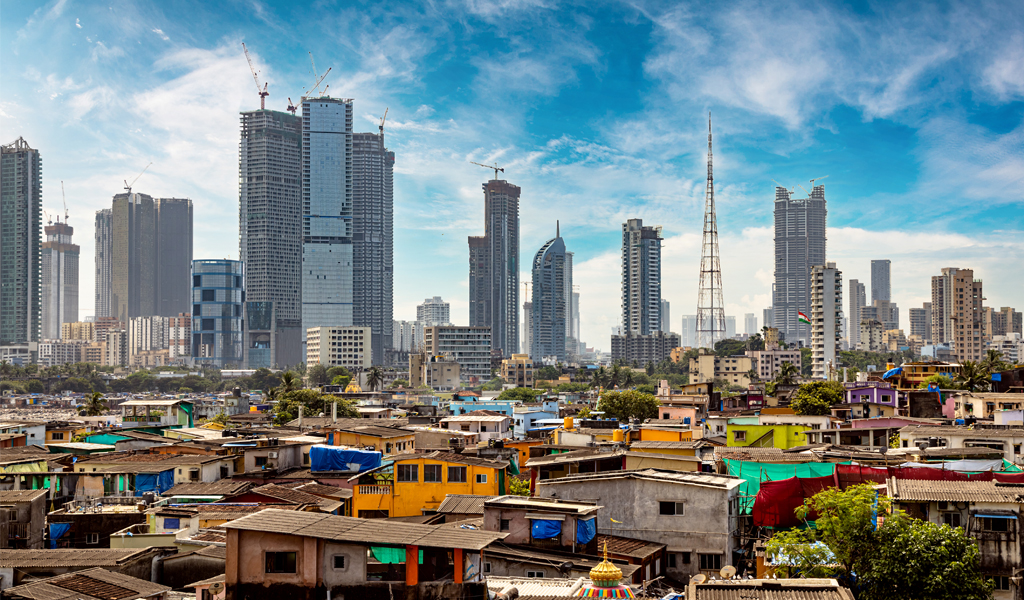Development experts will assess the latest trends in development and explore what challenges and opportunities might arise in 2024, at the Institute of Development Studies’ Recasting Development in 2024 event on 30 January.

Chaired by IDS Director Melissa Leach, the event will examine five key areas: political participation, economic democracy and food, humanitarianism, financial systems, and power and just transitions.
Crisis in the Middle East, the climate emergency, growing inequality and misgivings about democracy are all reasons to be pessimistic about 2024. But Recasting Development in 2024 will examine what we can do to recast development in a more inclusive manner and move the world away from injustice, inequity and oppression.
Read about the five topics that the event will explore:
Political participation
 Marjoke Oosterom, Research Fellow
Marjoke Oosterom, Research Fellow
With upcoming elections in countries such as India, Pakistan, Ghana, South Africa, Indonesia and the USA, 2024 is being described as the biggest year for elections in history. But is democracy delivering? Young people in particular are expressing misgivings about democracy, choosing increasingly to not vote, and are open to other forms of governance. How are people engaging with democracy, and how are they reacting to the anti-democratic backlash?
Economic democracy and food
 Jodie Thorpe, Research Fellow
Jodie Thorpe, Research Fellow
The global economy is failing to deliver for the majority, and playing a significant role in the anti-democratic backlash. Food is just one area where citizens have been excluded from economic decisions that affect them. As a result, 2023 saw growing stresses with food systems in high, medium and low-income countries alike. While many segments of civil society are working for radical food system transformations, governments, businesses and others are fighting to retain the industrialised food systems that have developed in recent decades. What do we learn from these tensions in the food system about economic democratisation?
Humanitarianism
 Philip Proudfoot, Research Fellow
Philip Proudfoot, Research Fellow
Humanitarianism has traditionally disavowed overt politics. For both ‘access’ and ‘ethics,’ aid’s objects of intervention are not systems of oppression but their consequences: suffering human beings. While always contentious, this rationale is now under assault from two directions at once. First, hypocrisy in Western responses to Israel’s war on Gaza are making a mockery of universalist morality. Second, proliferating protracted emergencies see aid workers ineffectively administering, but not solving, deepening crises. Is it time, then, for humanitarians to re-cast their relationship to power?
Financial systems
 Mbakiso Magwape, Post-doctoral Researcher
Mbakiso Magwape, Post-doctoral Researcher
How can countries in the global South finance public services and infrastructure in line with their developmental aspirations? The path to economic progress is compromised by carbon taxation which threatens trade exports and industrialisation efforts under the AfCFTA. Sovereign debt also poses a threat, with African Countries defaulting on loan arrangements which has led to calls to reform MDBs. Can taxation offer a sustainable solution? This will require domestic and international tax reform efforts – the UN tax convention promises to remedy imbalances in global tax governance and an increased share of revenue for the global South.
Power and just transitions
 John Gaventa, Professor
John Gaventa, Professor
Despite over two decades of discussion, the recent COP28 was the first such global event in which all parties called for “transitioning away from fossil fuels in energy systems, in a just, orderly and equitable manner.” But whether or how this might happen is shaped by questions of power. Whose justice will predominate? Will the global fossil fuel industry cede power? How can we build the power to ensure and equitable – and urgent – transition, particularly for those communities at the front line of energy transition?
Sign up for Recasting Development in 2024